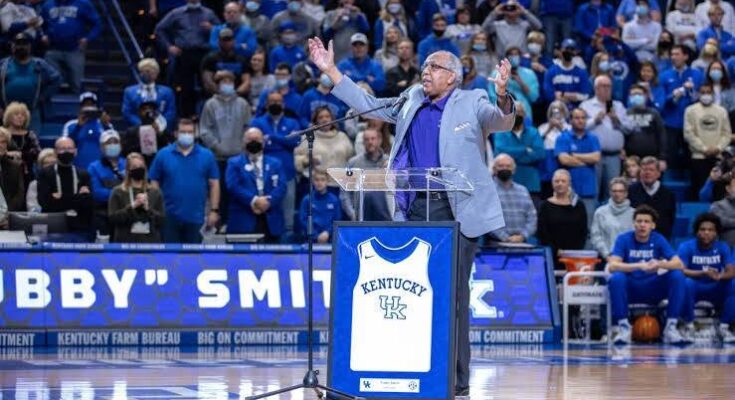While it’s difficult to measure “underappreciation” in coaching legend status, both Joe B. Hall and Tubby Smith share compelling credentials and legacies that often get overshadowed—especially in a college basketball fervently focused on flash, NBA pipelines, and sustained Final Four runs. Their stories deserve thoughtful reevaluation.
After spending seven years as an assistant under Adolph Rupp, Joe B. Hall was named Kentucky’s head coach on April 1, 1972 He inherited the weight of Rupp’s stringent legacy and the expectations of a program steeped in tradition and historical success.
Hall earned a national championship in 1978, his sixth season, finishing with a 297–100 record at UK and 373–156 overall
His tenure included multiple deep NCAA tournament runs: runner-up in 1975, Final Four in 1984, and an NIT title in 1976
He won National Coach of the Year in 1978 and SEC Coach of the Year four times
Hall integrated Kentucky basketball—embracing Black athletes and hiring the first Black assistant coach, Leonard Hamilton This was pivotal in modernizing the program and aligning it with broader social progress.
In 2012, he was inducted into the College Basketball Hall of Fame, and in 2013, a statue was unveiled outside Wildcat Coal Lodge
Yet national recognition often skews toward more flamboyant personalities or consistent Final Four contenders.
His calm, steady leadership is overlooked in a landscape that prizes flash.
The “Rupp era” cast a long shadow—Hall’s quieter demeanor paled next to Pat Riley-esque charisma that emerged later in college basketball.
A single NCAA title, in a flash-flood of elite coaches, kept him just beneath the most celebrated tiers.
- His emphasis on character and consistency built something enduring, but subtle.
- Appointed on May 12, 1997, Smith took over after Rick Pitino’s back-to-back NCAA title (1996) and runner-up finish (1997) (He inherited a high-expectation squad with seven returning players from those successes
- In his first year, Smith led Kentucky to its seventh NCAA title—remarkably, without any first-team All-Americans or future lottery picks Known for “Tubbyball”—a disciplined, defense-first style—he turned a balanced squad into national champions (Over ten seasons, Smith achieved:
- 263–83 overall record (.760 win pct.)
- Five SEC regular-season titles and five SEC tournament titles Perfect 16–0 SEC regular season in 2003
- Four Elite Eight and six Sweet Sixteen appearances
- National Coach of the Year (2003, 2005) and SEC Coach of the Year three times
- Jersey retired and honoured as a 2024 SEC Legend
- Awarded the John R. Wooden Legends of Coaching Award (2016) (
- Praised widely for placing people first:
- Former players describe him as a nurturing leader who prioritized personal growth above wins .
- Wayne Turner: “That’s not who he was … a teacher,” embodying discipline and compassion (
- Scott Padgett recounted “the Tubby stare”—a hallmark of his accountability approach (
- Kentucky fans sometimes dismissed his slower style—earning nicknames like “Ten-Loss Tubby”
- No Final Fours after 1998 until his departure, fueling impatience
- Criticized for lacking elite recruiting typical of the UK pipeline
- Coaching peers, like Tom Izzo, highlight his underrated strategic strengths: “toughness” and defensive elevation after adversity .
- Held in high regard for integrity—John Calipari called him “a class act” .
- Operated quietly with dignity: shaking hands with all staff pre-game, personally apologizing for curt news conference responses
- Coached five different programs into the NCAA tournament (Tulsa, Georgia, Kentucky, Minnesota, Texas Tech) (
- Won Naismith and Jim Phelan national coach awards, and six conference coach titles across schools
- Memoir forthcoming in 2025, heralded as story of “history’s most underrated college basketball coach of greatness”
- Their temperaments clashed with today’s feed-driven culture, where charisma and NBA high-rises often outweigh steady team-building.
- The explosive brand period under Pitino and Calipari overshadowed their achievements.
- Kentucky’s fan base often gauges success by national visibility—Final Fours, NBA players, dominant “next level” drafts.
To elevate their status, let’s consider:
- Sustainable Leadership: Both coaches provided stability in transitional eras.
- Structural Progress: Hall integrated the program; Smith enforced cultural depth with discipline.
- Character Legacy: They valued people over press, earning players’ lifelong loyalty.
- Strategic Competence: From tournament runner‑up to disciplined defense, their systems worked.
- National Coaching Prowess: Smith’s adaptability across schools, Hall’s multi-tournament depths.
Absolutely. Here’s why:
- Joe B. Hall deserves wider acclaim for guiding Kentucky through a transitional era with dignity, delivering a national title, and pushing racial progress.
- Tubby Smith should be acknowledged not just for a title, but for the resilience, integrity, and quiet leadership he brought—traits that today’s spotlight-driven culture often discards.
Kentucky basketball worships trophies and spectacle—but the foundation laid by Hall and Smith resonates deeper. Their stories show that legacy isn’t just in banners—it’s in character, consistency, and caring.
So are they the most underappreciated Hall-of-Fame legends? Maybe not universally—but within the Kentucky community, the conversation is valid. When hot takes cool, their legacies shine clearer.
Instead of flashy recruits or loud personalities, Hall and Smith built basketball the old-fashioned way: with heart, structure, and gradual progress. In a program defined by excellence, theirs were the quiet voices holding it steady—and that precisely deserves admiration today.
Conclusion: It’s time Kentucky fans—and college basketball at large—acknowledge that heroism can come in quiet dignity. Joe B. Hall and Tubby Smith built legacies rooted in values as strong as their wins. That, arguably, makes them the most underappreciated legends in the Hall of Fame.



